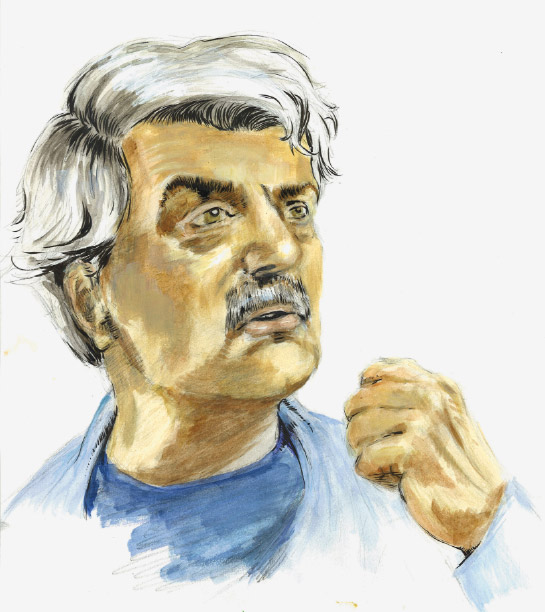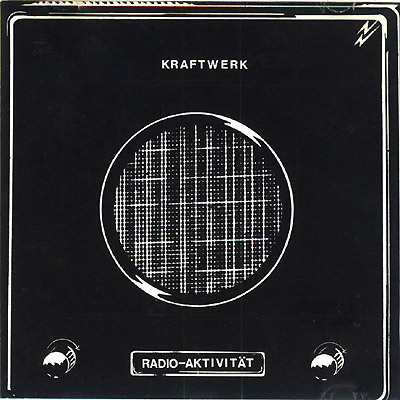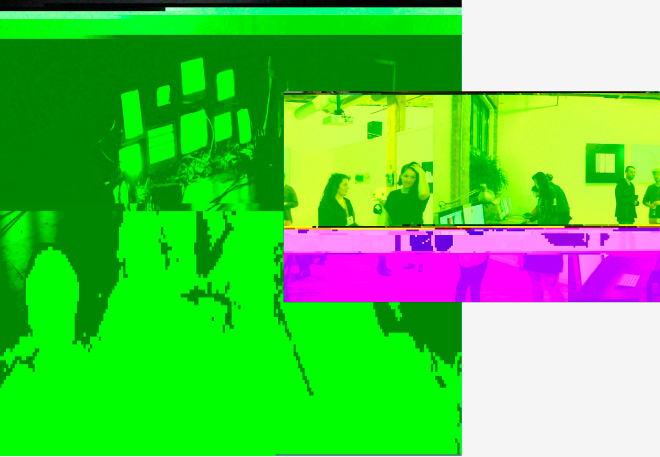
We are living in interesting times. You don’t have to listen very hard to hear rumblings of discontent stirring around the world. From the Egyptian revolution and the fall of Hosni Mubarak, to the Libyan Civil War and the killing of the despot Muammar Gaddafi, to the continued civil uprisings in Syria, to the strikes in Greece and the occupations blossoming all over America, it is obvious that, as British-Pakistani historian Tariq Ali put it, “There is something new in the air.”
Tariq Ali is a long-time, committed activist on the English radical left. A Trotskyist, Ali became active in the New Left in the 1960s. He witnessed the horrific impact of U.S. bombing in Vietnam, the student occupations and the wildcat strike in France in 1968. He befriended influential figures such as Malcom X, John Lennon and Yoko Ono. It is said that Mick Jagger wrote the 1968 song, “Streetfighting Man,” about Ali.
“It’s good to be in this country again,” Ali explained at the Victory Gardens on October 28 in front of a star-covered curtain,“because things are beginning to move. It’s a sign that what happens in other parts of the world, parts of the world where no one imagined things were going to happen, does have a global impact.”
Ali warned not to underestimate the impact of the Arab revolutions, the ripples of which are felt today throughout Europe and the U.S.: “I don’t think you would have had an Occupy Wall Street had it not been for Tahrir Square. It might have happened in a different way, but not in the form of occupying a central space in the city. And it’s beginning to make people in this country nervous.” According to Ali, Occupy movements are erupting because “turbo-charged capitalism has deeply degraded democracy and democratic functioning, so that no alternatives are permitted. If you have a democracy in which none of the mainstream parties offer any real alternative, then what’s the difference between that and a one-party system?” In this political paralysis he described as the rule of the extreme center, every mainstream political party has become blinded by the power of corporate capital and are unable to offer any solutions to their protesting citizens.
“I don’t think you would have had an Occupy Wall Street had it not been for Tahrir Square. It might have happened in a different way, but not in the form of occupying a central space in the city. And it’s beginning to make people in this country nervous.” Tariq Ali
“This applies to Obama just as much as it applies to Bush,” Ali explained. “On all the fundamental issues Obama has remained in continuity with the previous administrations. When Bush was asked last year what he thought of Obama, he said: ‘I’m a great admirer of the president. He’s doing a great job, just as I was.’” The self-perpetuating system, Ali explained, is in a state of crisis. “That is why young people are demonstrating — because they do not see any alternative coming from the political class, the Republicans or Democrats that rule the country.”
The economic crisis, that has gripped Europe in recent months, is causing continuous unrest, strikes and rioting. This year Greece and Spain have seen millions of people flooding their streets, participating in protests against harsh austerity measures affecting the quality of life of ordinary people. Ali explained that Italy and Portugal are also on the brink of economic collapse.
In France, the Invisible Committee, an anonymous group of radical intellectuals, were drawing connections between these international events before some even occurred. In 2007 the group published “The Coming Insurrection,” a book hypothesizing that we are amidst the collapse of global capitalism. The book describes the impetus to create a movement big enough to sweep the world into the dawn of a new society.
“Revolutionary movements do not spread by contamination but by resonance. Something that is constituted here resonates with the shock wave emitted over there,” claims the Invisible Committee. “An insurrection … takes the shape of music, whose focal points, though dispersed in time and space, succeed in imposing the rhythm of their own vibrations, always taking on more density.” Steeped in the philosophy of Deleuze and Foucault, the book describes our current world as global unrest grows every day: “There is the financial crisis, of course, with its booming unemployment. … There is the failure of the education system, its dwindling production of workers and citizens. … There is the existence of a youth to which no political representation corresponds.” The book describes the rule of the extreme center: “From whatever angle you approach it, the present offers no way out.”
The revolutionary manifesto calls for a quick, collective, and dynamic uprising against the elites of society, rejecting all organizations and embracing anonymity. Other voices in the global movements, however, warn that social movements often take a slower approach. After witnessing the Greek uprisings decline into small gatherings, Z Magazine journalist Michael Albert advocated for a self-managed, slow-paced movement in the occupations of the U. S. “We need not only patience in the face of a long struggle, but also a sense of optimism and desire. The occupations are a start, a veritable firestorm of initiation, and they already have vastly wider support than their direct participation evidences,” he wrote in his article “Occupy to Self Manage.”
While opinions on tactics vary, from the armed revolutions in Egypt and Tunisia to the peaceful occupations in the U.S., one vein runs through the global movements today — people are fed up and find no alternative in political systems that are trapped in the grip of corporate capital. For this reason, Ali asserted the importance of developing several simple demands that establish the rights of common people. “This means a demand for a totally free education system, for a totally free health system, for a subsidized public transport system … just to name three.” These demands could be taken up on a global scale, giving a powerful voice to the shared discontent felt by millions all over the world.








[…] Hi, I’m Sierra Nicole Rhoden! I’m currently pursuing my M.A. in New Arts Journalism at SAIC. I like to write, draw, dance, and drink tea. My interests are scattered and include visual and performing arts, comics, nature, food, and people-watching. I don’t really have an online portfolio yet, but I sometimes post my doodles on puffsdoodleblog.blogspot.com. I also just started illustrating for F Newsmagazine. Here’s my first assignment, an illustration of political activist Tariq Ali. […]